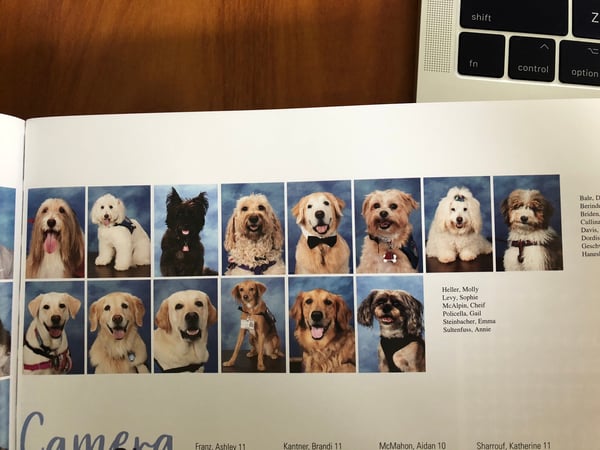2 min read
Recovery is A Ruff Process: Therapy Dogs and the Aftermath of Emergency on Campus
![]() Bobby Decker, Operations Specialist
:
May 29, 2019
Bobby Decker, Operations Specialist
:
May 29, 2019
We’ve written before about how recovering from emergencies can be a long, complicated process. The hard work of rebuilding a campus and/or a community remains even after the “newsworthiness” of the event has faded. The effects of post-traumatic stress disorder (PTSD) may be present for months, years, or even longer following a serious event.
One of the other serious challenges that this extended recovery presents is the logistical challenge of providing sufficient support over a long period of time. Long-term recovery efforts are just as important as those we undertake in the immediate aftermath, but they are also less attention-grabbing. That means that fundraising support and outside donations that may have come in during the days and weeks following the emergency will dry up as time passes. Every community has its own unique situation, but many would likely find it difficult to fund a large-scale program, such as making multiple counselors available to the community during an extended period of time.
So, schools must find additional ways to support their community in the recovery process. One example seen in recent months comes from Marjory Stoneman Douglas High, the school in Parkland, FL that suffered a mass shooting in February 2018. More than a year later, the community is obviously still recovering. It’s hard to imagine the emotions students felt as they tried to return to something approaching a normal routine during this school year. In fact, many students feel as though the district and school have not done a good enough job in providing support as well as outlets to discuss, remember, and try to heal from the event.

The one successful constant for their community’s recovery? The fourteen therapy dogs who had been supporting students and brightening their days ever since the attack. As they were such a key resource for the community, the yearbook team decided to honor the pups with their own page in the book! In terms of being adorable, this is clearly a huge success. It also is a useful demonstration of how schools can find intelligent, effective, and affordable ways to support their community's recovery. Students say that the dogs have brought a genuine sense of comfort, calm, and relaxation. These emotions, so desperately lacking in the aftermath of a tragedy like this, are genuinely invaluable. I can’t imagine a community that needs those feelings more.
For a variety of reasons, these sorts of alternatives to full-time adult counselors may make sense on school campuses. Therapy dogs are a good way for students to recognize and begin to work through difficult feelings and thoughts, without the formality (and perhaps pressure) that comes with organized therapy. In a similar vein, peer support groups can also serve as an additional resource for recovery. If you’ve ever been around a group of children, you probably have observed that they’re usually more forthcoming and chatty around their peers. This rule of thumb applies to all subjects of discussion, from the casual to the more serious. Consider providing avenues for students to discuss an emergency and the recovery process in this manner. Often, the more casual setting allows for important things to be said and felt.
Of course, we certainly wouldn’t suggest that there’s no role for adult counseling, or that taking steps like therapy animals or peer support groups is enough to help navigate through a successful recovery process. In fact, a more accurate summary would be to recognize that we must consider how we can allocate our resources in the way that best helps us achieve our goal - rebuilding our community strength.
In recovery, you’ll almost always be surprised by the ways people are moved, and the things that move them. Don’t be afraid to listen to the needs of your community, and try to meet them where they’re telling you they are, instead of trying to coerce them to come to you.
For a broader look at helping your school community recover from a disaster, go here for our perspective on business continuity.

